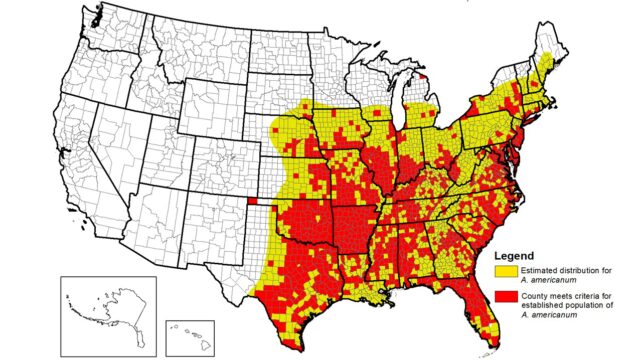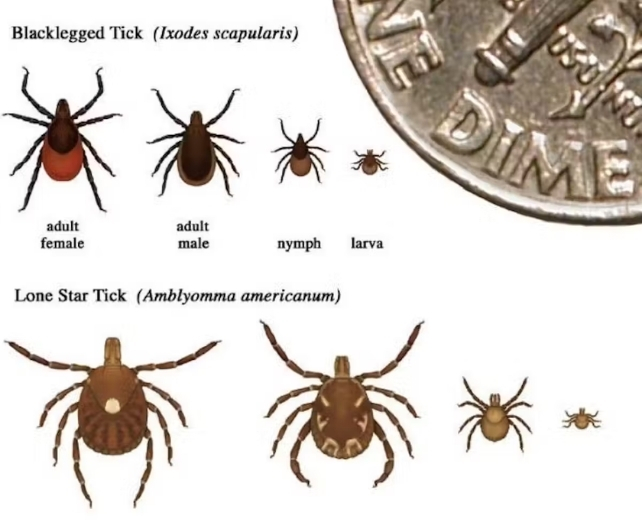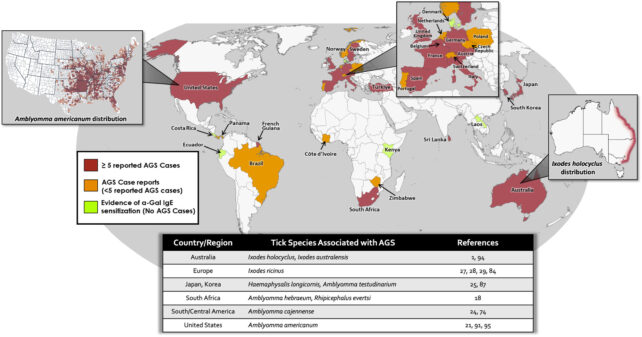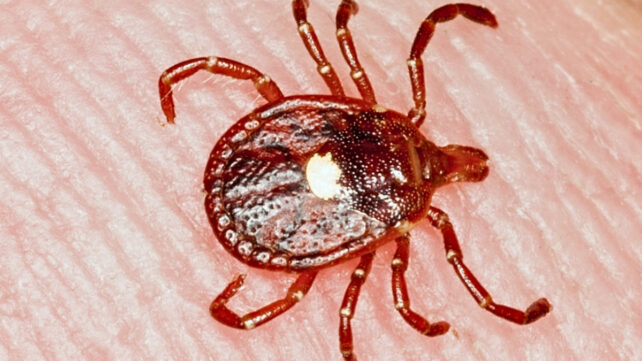Four hours after eating steak during a family camping trip, a 47-year-old man from New Jersey became severely ill. Having seemingly recovered by the next morning, he suffered fatal anaphylaxis after eating a hamburger just a few weeks later.
Post-mortem blood tests revealed the otherwise healthy father had acquired a severe red meat allergy from the bite of a lone star tick (Amblyomma americanum).
"It is important that both doctors and patients who live in an area of the country where lone star ticks are common should be aware of the risk of sensitization," cautions University of Virginia allergist Thomas Platts-Mills.
"If they have unexpected episodes of severe abdominal pain occurring several hours after eating mammalian meat, they should be investigated for possible sensitization to the oligosaccharide alpha-gal."
Related: A Disease That Makes You Allergic to Meat And Dairy Is Spreading Around The World

Alpha-gal is a sugar commonly found in the cell membranes of many mammals, but not in humans. If a tick bite injects alpha-gal directly into our bloodstream, our bodies mount an immune response, developing antibodies that target the sugar. Primed to act fast, those antibodies could trigger an allergic response to alpha-gal when we next encounter it, such as when we eat beef, lamb, pork, milk, or cheese.
Symptoms of alpha-gal syndrome include rash, sneezing, runny nose, headaches, abdominal pain, diarrhea, faintness, nausea, vomiting, and swollen lips, throat, tongue, or eyelids.
Experts have long suspected our immune response to alpha-gal has the potential to turn fatal. Now they have confirmation, thanks to the deceased man's wife pursuing answers after her husband's initial autopsy returned inconclusive.
Platts-Mills' team found the man's tryptase – a marker of anaphylactic reactions – exceeded 2,000 nanograms per milliliter, putting it on par with the highest recorded levels ever seen in cases of fatal anaphylaxis.
The patient and his wife had attributed insect bites on his ankles to 'chigger' mites, a common misidentification in the area.

"In the eastern United States, what are often called 'chiggers' are more often larvae of Amblyomma americanum (i.e., lone star ticks), which are known to bite humans," Platts-Mills and colleagues explain in their case report. Juvenile ticks are also capable of triggering alpha-gal syndrome.
The researchers suspect the tick's increasing presence farther north than historically found is due to a dramatic increase in the region's deer – the primary breeding host of the tick. Global warming is also allowing ticks to thrive farther north and west, seeing them move into regions previously too cold for their survival.
Red meat allergies have also been associated with ticks found in Australia, parts of Europe, and Asia.

"The important information for the public is: First, that severe abdominal pain occurring 3 to 5 hours after eating beef, pork, or lamb should be investigated as a possible episode of anaphylaxis; and, second, that tick bites that itch for more than a week or larvae of ticks often called 'chiggers' can induce or increase sensitization to mammalian-derived meat," warns Platts-Mills.
"On the other hand, most individuals who have mild to moderate episodes of hives can control symptoms with an appropriate diet."
The case report was published in the Journal of Allergy and Clinical Immunology in Practice.

